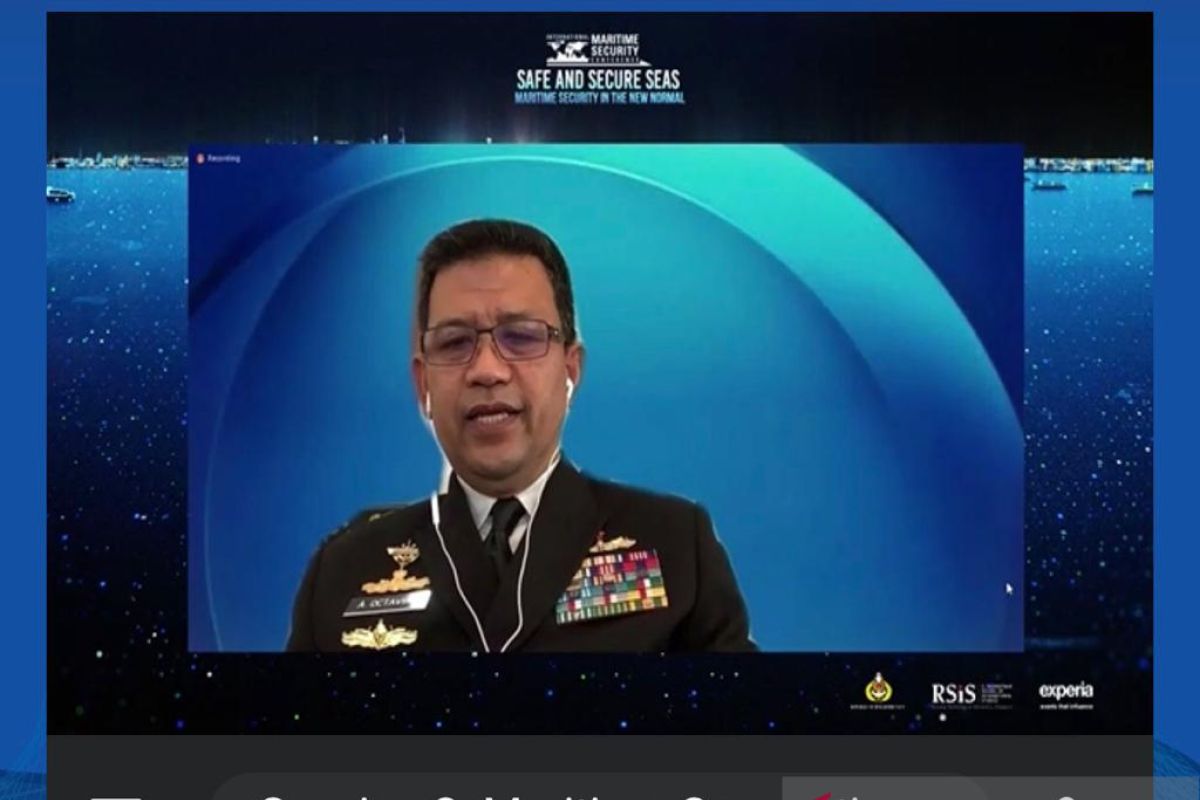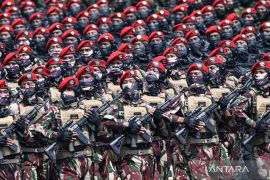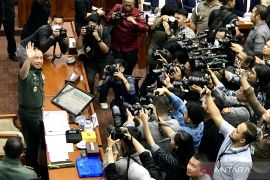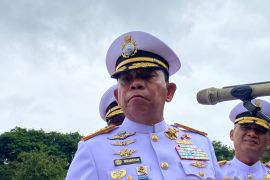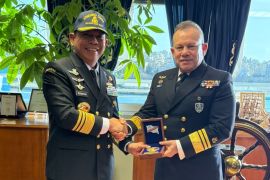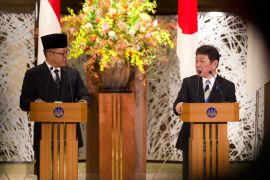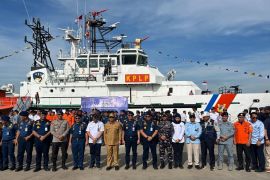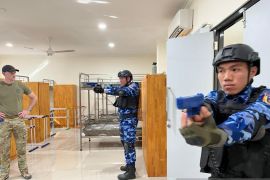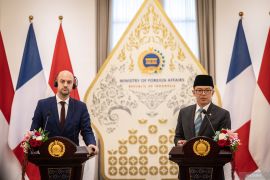COVID-19 is dangerous, as it is vulnerable to be misused as a biological weapon by terrorists. All countries can utilize the architecture of security cooperation to roll out Bio-Defence and Bio-IntelligenceJakarta (ANTARA) - Rector of the Indonesian Defense University (Unhan) and TNI (Indonesian Defense Forces) vice admiral, Prof. Dr. Amarulla Octavian, underlined the need for global cooperation to tackle the threat of biological terrorism at a conference on Wednesday.
"COVID-19 is dangerous, as it is vulnerable to be misused as a biological weapon by terrorists. All countries can utilize the architecture of security cooperation to roll out Bio-Defence and Bio-Intelligence," he remarked at the 7th International Maritime Security Conference, organized online by the S. Rajaratnam School of International Studies and the Singapore Navy.
It is important to internationally register all unmanned systems used by navies and coast guards around the world, Octavian said.
"All UAVs (Unmanned Aerial Vehicles), USVs (Unmanned Surface Vehicles), and USSVs (Unmanned Subsurface Vehicles) must be registered to be legally identified as one of the world countries' belonging, and not belonging to the sea criminal perpetrators," he explained.
The international conference was divided into four sessions, each of which had a different theme.
It was attended by eleven naval chiefs and four coast guard heads, professors from several universities, representatives from shipping and shipbuilding industries, and officials from international and regional organizations.
Related news: Indonesia urges ASEAN countries to improve maritime security
The conference was officially opened by Singapore Navy Rear Admiral Aaron Beng and Singapore's Minister of Defense, Dr. Ng Eng Hen, who served as the main speaker.
As the second speaker of the second session, Octavian presented a paper on 'Maritime Connectivity and Resilience in the Post-Pandemic Maritime Environment'.
In the paper, Octavian comprehensively covered the role played by Indonesia in ensuring the security of international sea trade routes.
The vice admiral also talked about Indonesia's contribution to maritime connectivity and maritime resilience.
"Indonesia's main contribution is the implementation of the Traffic Separation Scheme (TSS) in the Sunda strait and the Lombok strait to reduce traffic density in the Malacca Strait while protecting Indonesia's marine ecosystem from pollution hazards," Octavian informed.
The other speakers at the conference included six naval chiefs from the United States, France, Germany, India, Japan, and Malaysia, and three vice chiefs from China, Australia, and the United Kingdom.
Besides military officials, academics, practitioners, and maritime security experts also attended the event.
Related news: RI starts building marine combat force command headquarters in Natuna
Related news: Some 36 countries partake in 10th Maritime Security Desktop Exercise
Translator: Syaiful H, Kenzu T
Editor: Azis Kurmala
Copyright © ANTARA 2021
